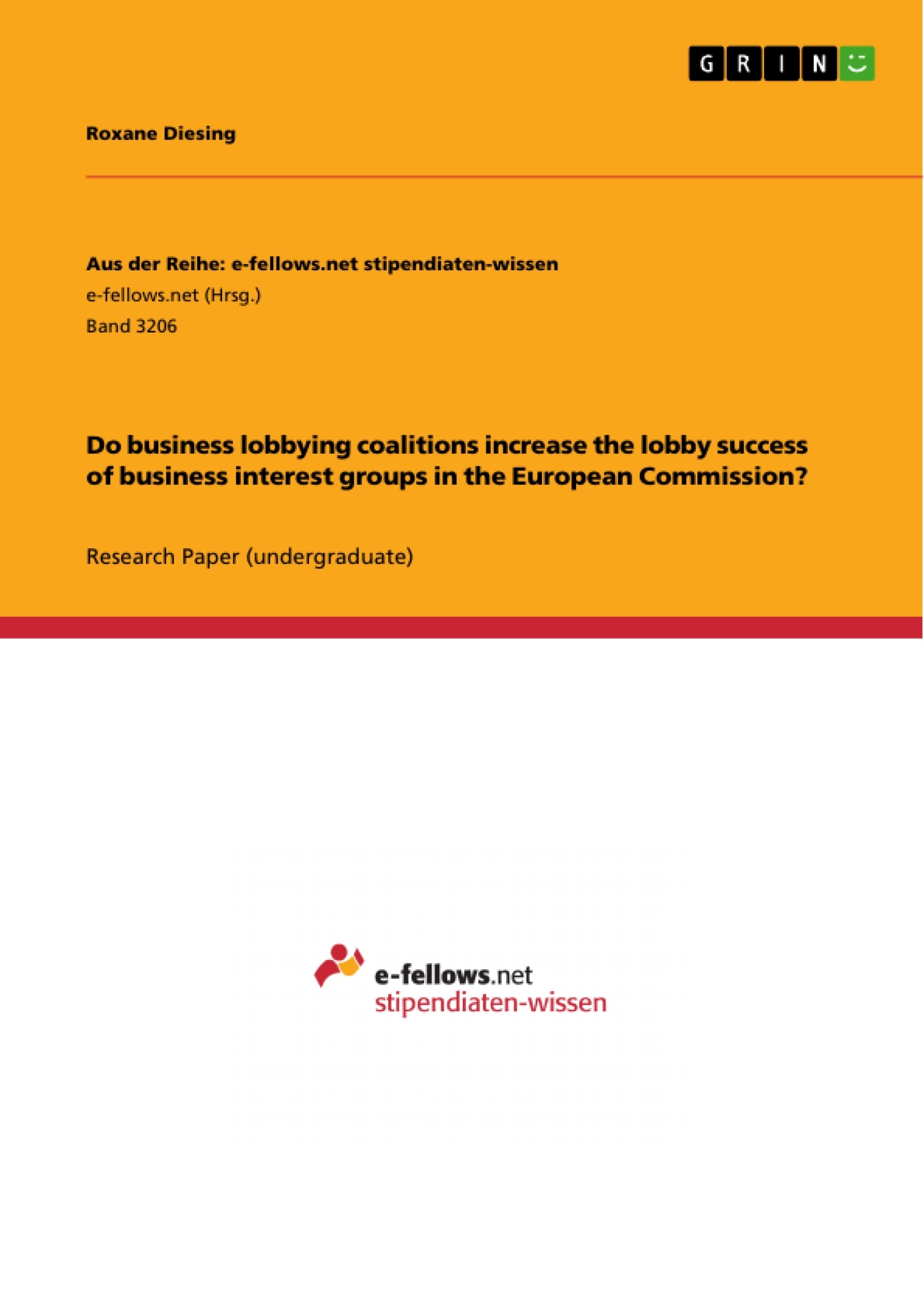With my study I want to contribute to the current debate on the influence of so-called lobby coalitions on policy outcomes with a focus on the way the lobbying process in the European Commission is organized. Since this is a rather new field that still lacks empirical research, I will analyse the influence of lobby coalitions in European policymaking with the help of a representative case. I will focus on business lobby coalitions especially.
In the end of November 2017, the German Minister of Agriculture voted surprisingly for a further use of the herbicide Glyphosate in the Council of the European Union. However, Minister Schmidt did neither concur with his national coalition partner SPD nor with the World Health Organisation, which declared that Glyphosate could foster cancer. Did Schmidt give the agriculture lobby a voice with his vote? Companies like Monsanto, being part of the German Giant Bayer and the agriculture lobby, would have lost its main field of business with a decision against the herbicide. The controversial case of Glyphosate revives the old debate on the role of business interest lobbyism in the EU. Frequently, the process of policy making is under critic by the public for its lack of transparency in regard to the influence of powerful business lobbies. Particular the European Commission (EC), which on one hand has an exceptional role in the European legislation and on the other hand relies on input legitimacy for their policy-making, which is mainly provided by experts (interest groups) and on their expert information.
Inhaltsverzeichnis (Table of Contents)
- Introduction - Relevance of the research question
- Theory
- Lobbying in the European Commission
- Exchange theory – access goods
- Argument
- Method
- Case Study Design
- Case selection
- Analysis
- Case description - Emission trading system
- Case Analysis
- Case outcome
- Discussion
- Limitations and Implications
- Conclusion
Zielsetzung und Themenschwerpunkte (Objectives and Key Themes)
This study aims to contribute to the debate on the influence of lobby coalitions on policy outcomes, specifically focusing on the organization of the lobbying process within the European Commission. It investigates the influence of business lobby coalitions in European policymaking using a representative case study.
- The influence of business interest groups on EU policymaking
- The role of lobby coalitions in shaping policy outcomes
- The importance of access goods and information exchange in lobbying
- The application of social exchange theory to lobbying processes
- The use of case studies in analyzing lobbying dynamics
Zusammenfassung der Kapitel (Chapter Summaries)
- Introduction - Relevance of the research question: The study is introduced with the controversial case of Glyphosate, highlighting the public scrutiny of business lobbyism in the EU and the importance of understanding its influence on policymaking.
- Theory: This chapter examines the role of lobbying in the European Commission, focusing on business interest groups and their access to the EC through the provision of information and expertise. It introduces the concept of "lobbying coalitions" and the exchange of resources between the EC and interest groups.
- Argument: This chapter presents the author's argument, which is not detailed in the provided excerpt.
- Method: This chapter outlines the case study design and the rationale for selecting the case study. It describes the specific methodology employed in the research.
- Analysis: This section focuses on the case description, analysis, and outcome. It examines the dynamics of lobbying coalitions within the chosen case study.
- Discussion: This chapter discusses the limitations and implications of the findings, drawing conclusions from the case study and its relevance to broader lobbying processes.
Schlüsselwörter (Keywords)
This study focuses on the influence of business lobby coalitions on policy outcomes in the European Commission. It analyzes lobbying dynamics through the lens of social exchange theory, focusing on the exchange of information and access goods as key resources. The study utilizes a case study approach to examine the role of lobbying coalitions in shaping policy decisions.
Frequently Asked Questions
What are business lobbying coalitions in the EU?
Lobbying coalitions are groups of interest organizations (like companies or trade associations) that join forces to influence policy outcomes in the European Commission more effectively.
How does the European Commission benefit from lobbying?
According to social exchange theory, the Commission relies on "input legitimacy." It provides access to decision-making in exchange for expert information and technical expertise provided by interest groups.
Do coalitions increase the success of business lobbyists?
The study analyzes whether pooling resources and presenting a united front increases the chances of business interests being reflected in EU legislation, using cases like the Emission Trading System.
What are "access goods" in lobbying?
Access goods are resources that interest groups offer to policymakers, such as specialized knowledge, political support, or information about the economic impact of a regulation.
Why is transparency a concern in EU lobbying?
Public critics often point to a lack of transparency regarding the influence of powerful business lobbies on the European legislative process, which can lead to questions about democratic legitimacy.
- Citar trabajo
- Roxane Diesing (Autor), 2018, Do business lobbying coalitions increase the lobby success of business interest groups in the European Commission?, Múnich, GRIN Verlag, https://www.grin.com/document/491865



